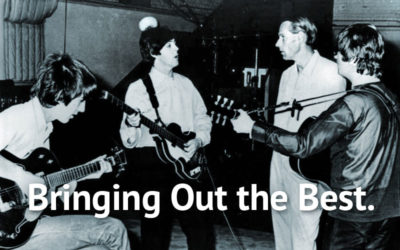I listened to a radio interview with a gentleman who owns and operates seven grocery stores in some of Philadelphia’s poorest neighborhoods. Many impoverished communities don’t have local grocery stores or other business anchors. These urban “food deserts” lack fully stocked supermarkets with fresh produce and competitive prices. Residents are forced to either shop at convenience marts and dollar stores or take public transportation into different areas to buy food and other necessities for their families.
But, in these markets where many entrepreneurs failed, Jeff Brown, CEO of Brown’s Super Stores, found success. When asked why he ventured into areas others chose to avoid, his response, in part, was simply that these communities needed their own local retailers and he considered it an opportunity to positively impact people’s lives. But, he also wanted to prove that success could be achieved when you do the legwork to understand your market:
“We’ve been doing food desert work for more than 15 years. And we think that part of the problem is misunderstanding how to operate in food deserts and misunderstanding the challenge of the economics and how to mitigate that challenge. And, we’ve been very successful continuing to improve on those two themes.”
How listening and learning yielded a model of success.
Before buying land, Jeff held town hall meetings with the residents to understand who they are. He found that different neighborhoods were comprised of different people. Some were heavily populated by immigrants who had their own beliefs, customs and diets. He overcame language barriers and worked with them to learn what they needed in a grocery store. It turned out that each of his stores would be customized in what they stocked and how they interacted with their customers.
As his previous work with similar communities taught him, Jeff Brown knew there was much more to growing his business than providing goods and services. Towns and neighborhoods need central hubs where people interact and begin to know each other by what they have in common. Jeff recognized this and first sought to make it clear to the residents that they were important to him. He established emotional binds and earned their trust by hiring from within their communities and, thus, creating a cycle of success.
Jeff Brown reaffirmed his mission to operate in under-served areas, help normalize people’s diets and uplift their communities. He delivered on his promise. And, by doing so, he has become a trusted local contributor.
Today, his seven stores are thriving. And Brown’s Super Stores, Inc. has been recognized by numerous local and national media outlets, as well as The White House, for their efforts in expanding healthy food access in poverty-stricken areas. What’s more, Jeff created a non-profit consulting firm to help others start supermarkets in food deserts by sharing his model of success.
Jeff Brown learned how to make a good living … and a big difference.
Whether your business is in a highly competitive or under-served market, the lessons remain the same:
1. Educate yourself about your audience before you venture into any market.
2. Connect emotionally with them to identify ways to bring real value to their lives.
3. Understand that you’re creating an experience that is about community, not just products or services.
4. Remain engaged with your market to uncover ways to continually improve your business model.
5. Deliver on your promises.
Listen to the podcast to learn more about Jeff Brown’s view of the economy and food deserts.
Related Posts
A story that’s never completely told.
Building a great brand is never once-and-done. It’s more than a name, logo, and graphics. It’s a frame of mind — an experience — with a narrative that stays relevant and makes its audience part of the story.
The tagline: Your stake in the ground
The tagline is not about who you are or what you sell. It’s about them: your target audience. So, you better make sure it’s concise, direct and memorable, so they recall it the each time they hear your name.
Sweating the details
Nobody is an expert at everything. Nobody. At one time or another, we all find ourselves forced into situations outside of our comfort zones. That’s why it’s important to rely on the expertise of others to help you make educated decisions and get the job done right.
Cold feet and missed opportunity
There’s no reason why you cannot go toe-to-toe with the “big boys.” That’s if you have the determination to up your game and bet on yourself. I’m willing to bet on you.
“I know a guy…”
Networking is not just about making connections and creating awareness of your business. It’s also about forming an alliance of credible professionals to help you fill organizational gaps and be able to confidently refer others.
What’s in a name, anyway?
If your business is like ours, you don’t have a bottomless marketing budget to build awareness of a name that lacks clarity. We have to be more calculated and deliberate.
Are you growing your circle of influence?
Your circle of influence should not be confined to your immediate sales prospects. That’s not what marketing in the 21st Century is about.
Three major hurdles of business naming
Business naming is one of the more difficult things we do. Aside from the creative challenges, there are three major hurdles we have to leap. For every name we present, there are, literally, dozens of candidates that never make the cut. The client never sees any of those.
Bringing out the best.
Greatness cannot be achieved within a vacuum. It takes vision, perseverance and a team of experts to make it happen. It requires an understanding of what your audience wants, even if it’s something that doesn’t quite exist. You aim high, learn from your failures and never say, “It can’t be done.”
Are you up for the challenge?
Remember, nobody can be right all the time. And, that applies to every one of us. After all, if we were always right, we’d never need anyone’s help, would we? When we accept that fact, we take a huge step toward bettering ourselves and our businesses.











